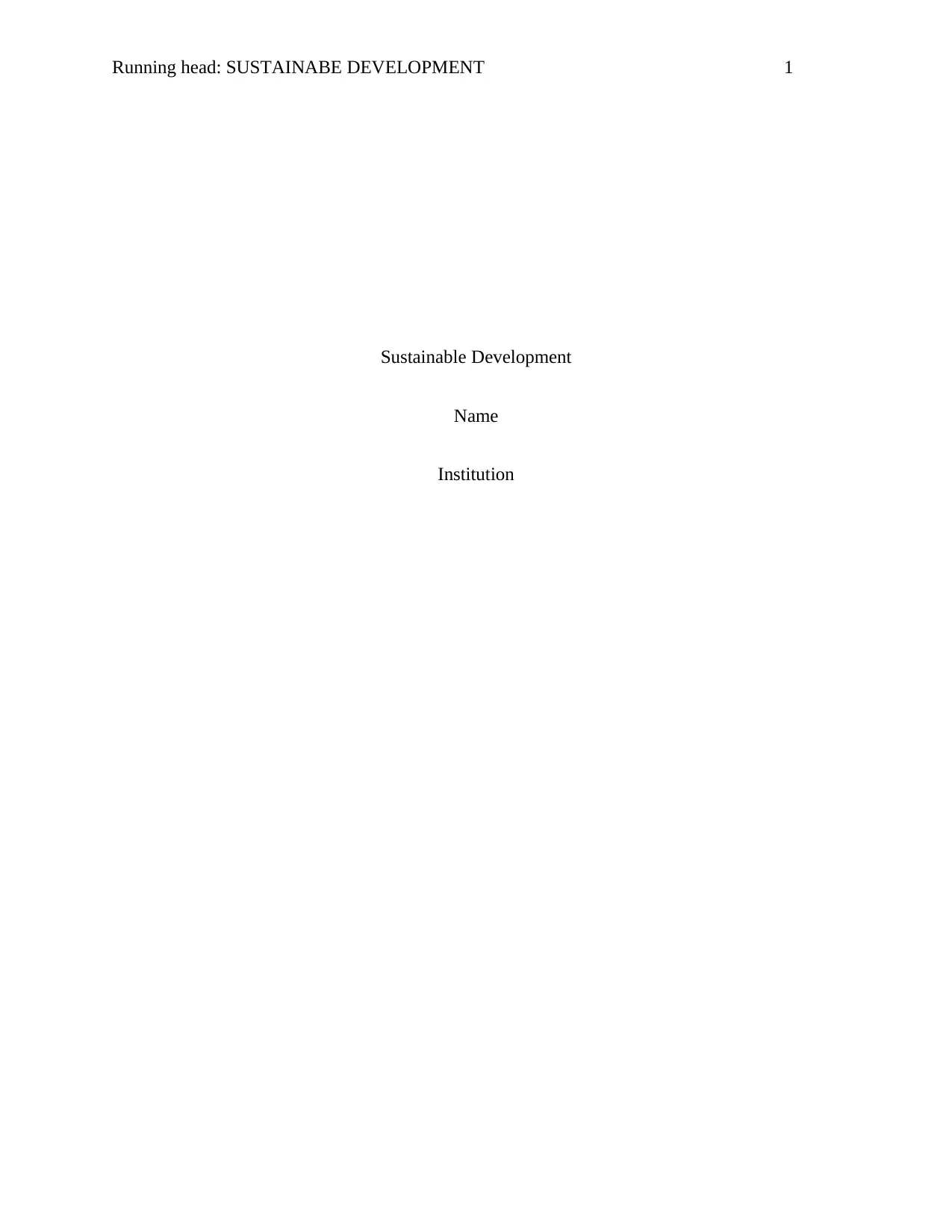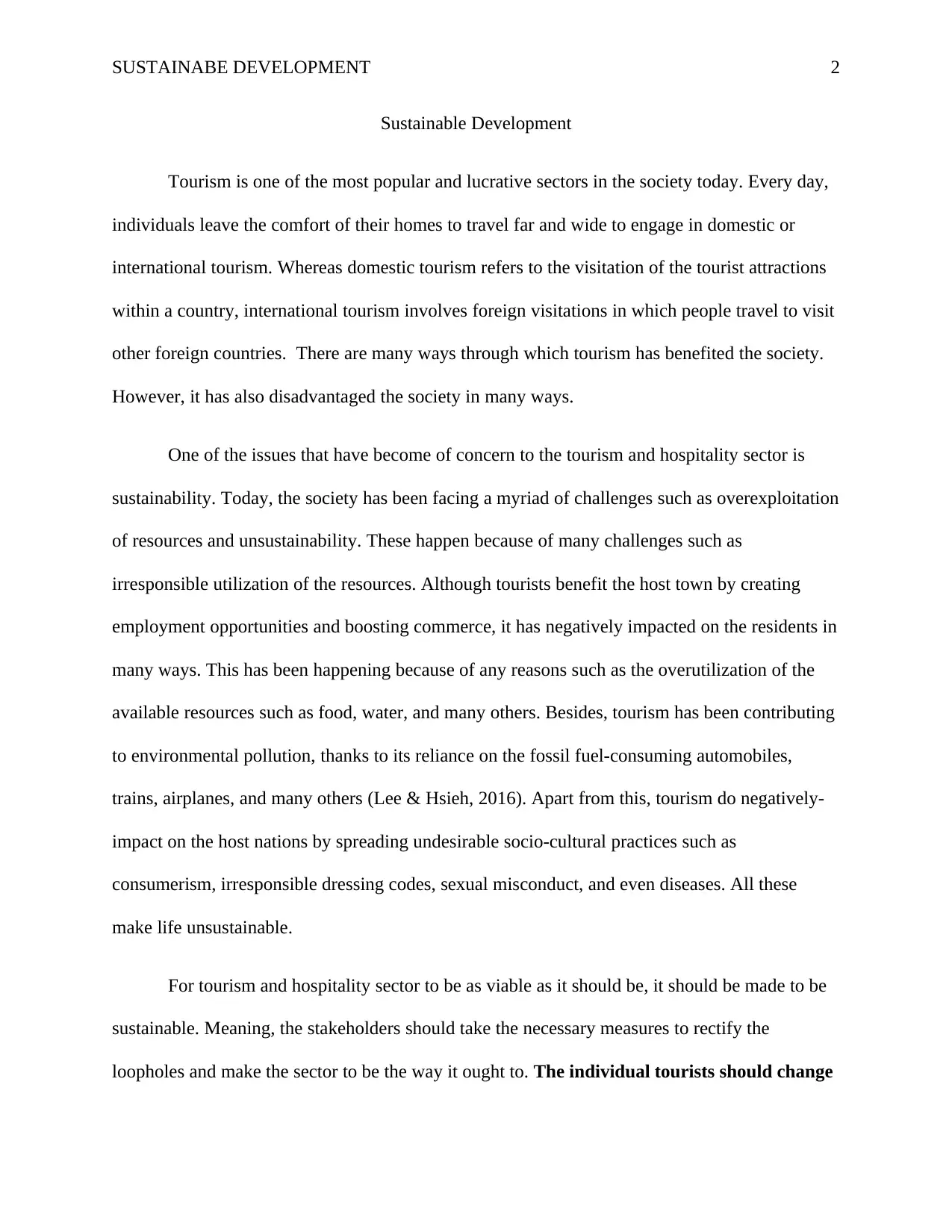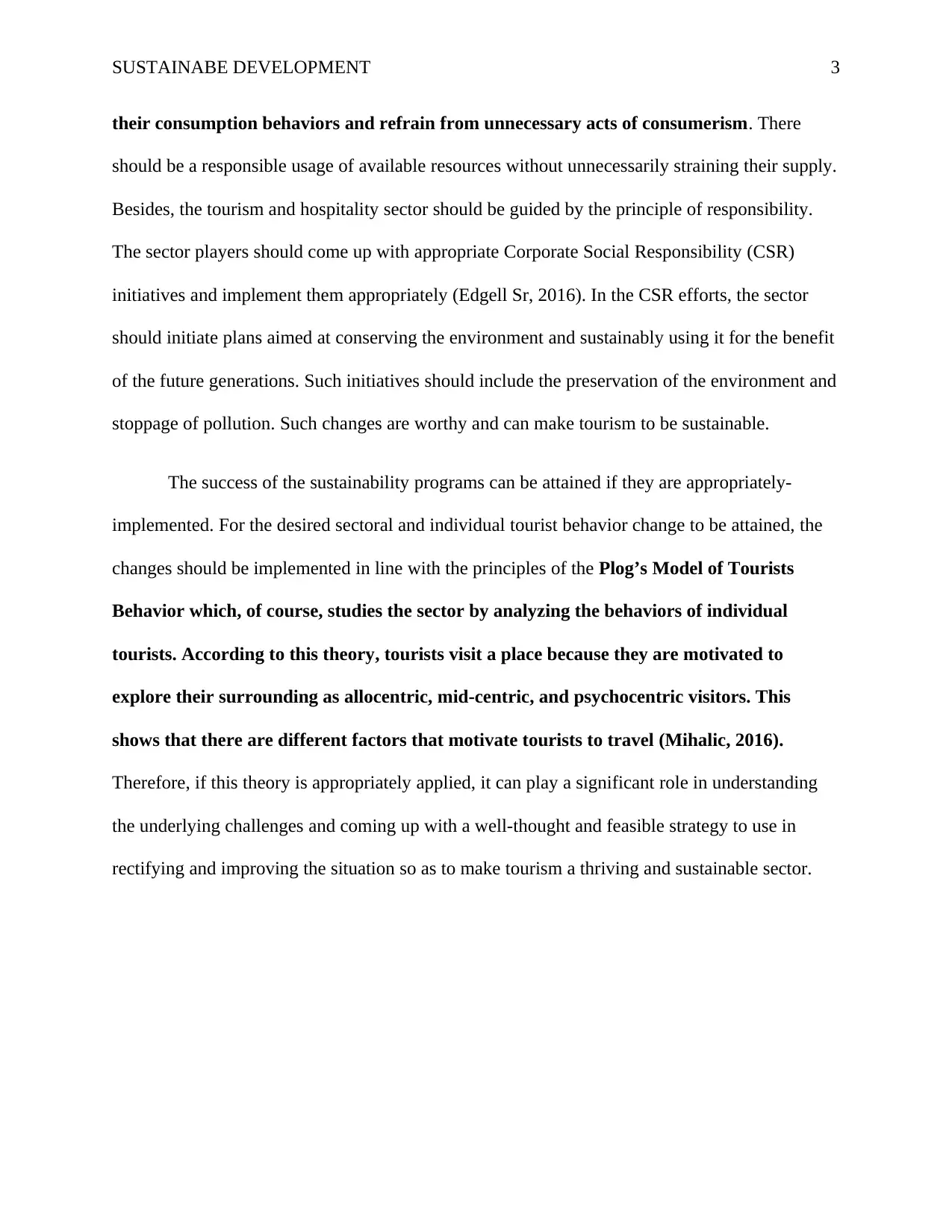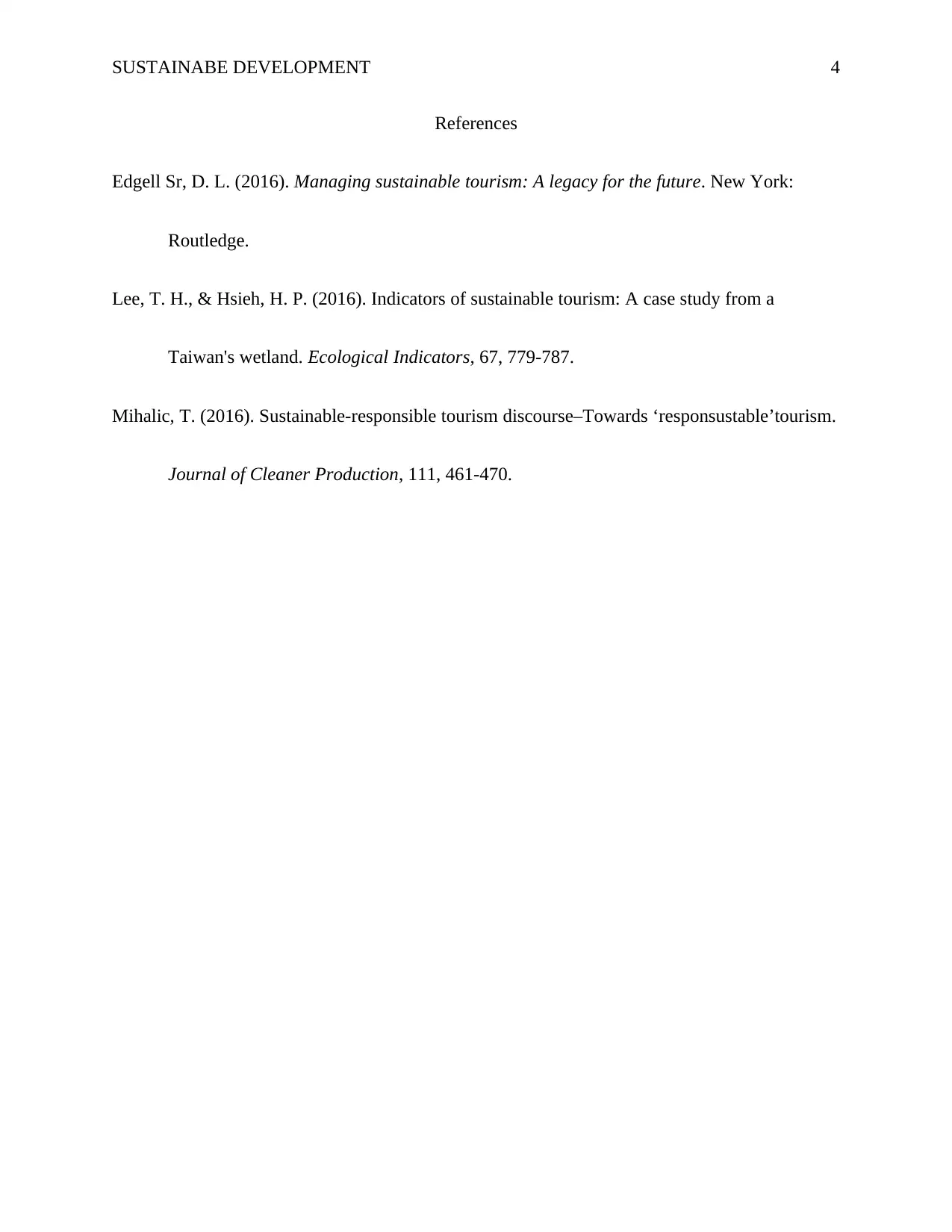An Analysis of Sustainable Development in the Tourism Industry
VerifiedAdded on 2022/12/20
|4
|692
|37
Essay
AI Summary
This essay examines sustainable development within the tourism sector, highlighting its significance and the challenges it faces. It discusses the benefits of tourism while also addressing its negative impacts, such as resource overexploitation, environmental pollution, and the spread of undesirable socio-cultural practices. The essay emphasizes the importance of sustainability in tourism, advocating for changes in tourist consumption behaviors, responsible resource usage, and the implementation of Corporate Social Responsibility (CSR) initiatives. It suggests that the sector should prioritize environmental conservation and sustainable practices for the benefit of future generations. Furthermore, the essay references Plog’s Model of Tourist Behavior to understand the motivations of tourists and develop effective strategies for improving the sector's sustainability, recommending the proper implementation of sustainability programs for desired behavioral change.
1 out of 4










![[object Object]](/_next/static/media/star-bottom.7253800d.svg)